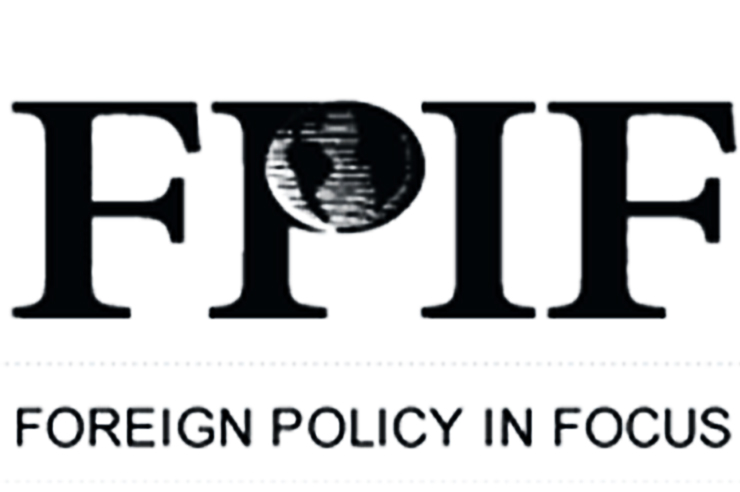A campaign of fear may have kept Mexico locked into the status quo.
Published in Foreign Policy In Focus.
MEXICO CITY — As the results of the July 2 presidential elections in Mexico head to the courts, it could be several days or even weeks before the final winner is determined. The current vote counts have given a thin advantage to Felipe Calderón of the right-wing National Action Party (PAN), to which incumbent president Vicente Fox belongs. Still, with the margin well under one percent and with irregularities in the vote-counting process being challenged, progressive former Mexico City mayor, Andrés Manuel López Obrador of the Party of the Democratic Revolution (PRD), might conceivably eke out a victory. While U.S. newspapers declare Calderón the winner, Mexican electoral authorities have yet to do so, recognizing the tribunal that is reviewing disputes as the final arbiter for the race.
The past months in Mexico have been marked by a campaign of fear against López Obrador. What conservatives portrayed as a dreaded possibility is the very thing that would have done most to consolidate the country’s transition to democracy: a peaceful passing of power across ideological lines.
When Vicente Fox won the last presidential elections in 2000, his triumph ended more than seven decades of one-party governance and disrupted some of the traditional patronage networks that had defined Mexican politics. Yet Fox furthered the same brand of market-oriented economic neoliberalism promoted for two decades by long-ruling Institutional Revolutionary Party, which joined with the PAN to pass NAFTA in the early 1990s.
As in many countries throughout Latin America, neoliberalism has failed to deliver for Mexico. Back when he was on the campaign trail, Fox promised that he would create economic growth of seven percent per year; the actual average was 1.8 percent. Even with the economy picking up in the first quarter of 2006, Mexico has not seen anywhere near the one million new jobs per year that Fox pledged. Instead, steep inequality, persistent poverty, and desperation have driven many Mexican immigrants north in search of opportunity in the post-NAFTA era.
Enter López Obrador. The center-left presidential candidate became a hugely popular figure as mayor of Mexico City by actually paying attention to the needs of the poor. He launched new public works and created pensions and subsidies for the elderly, single mothers, and the disabled. Through most of the presidential race, López Obrador polled as the clear frontrunner. He vowed to end special privileges and sweetheart contracts for the wealthy, to raise revenue by stemming an epidemic of elite tax evasion, and to expand his social programs nationally.
López Obrador’s impending victory offered something fundamental for democracy: the possibility of real change.
In the months leading up to the election, López Obrador’s political enemies fought his candidacy with relentless fear-mongering. Even after electoral officials reprimanded the PAN and forced the party to pull campaign advertisements that called López Obrador a “danger to Mexico” and that asserted false links with Hugo Chávez, right-wing business groups threw the same sucker punch in round two. They funded a series of “non-partisan” last-minute attack ads that showed images of the Venezuelan leader and, wink wink, stated that “Mexico doesn’t need a dictator.”
Meanwhile, U.S. pundits fanned the flames by spreading ominous accusations of “populism,” and political consultants traveled south of the border to help plot the character assassination.
With all the conservative vitriol, you would never know that López Obrador has been consistently criticized from the left for his moderation. Social movement groups like the Zapatistas paint his social initiatives as stop-gap measures that wouldn’t address the real dysfunction of the economic system. They contend that López Obrador has been too quick to affirm that Mexico will remain tied to the U.S. vision of a neoliberal global economy and too hesitant to forge a distinct economic path. And they disparage him for his plans merely to renegotiate the sections of the North American Free Trade Agreement’s that most hurt Mexican producers, rather than to scrap NAFTA altogether.
As López Obrador’s supporters believed it would, Calderón’s lead from preliminary tabulations narrowed as a full vote count progressed, but the conservative retained a slight edge. Now, an electoral tribunal will be reviewing disputes and making a final determination. The conduct at the great majority of polling places during last Sunday’s elections was a far cry from in the bad old days of one-party government, when bought votes and stuffed ballot boxes were the norm. Still, the PRD has alleged serious irregularities in the vote-counting process. If evidence continues to mount it may well raise the specter of a stolen election for the wider Mexican public.
In that case, popular protests would be justified to prevent a repeat of the infamous elections of 1988, when blatant fraud was used to stop another progressive candidate from taking office.
A surge of action in the courts or on the streets may yet alter the results of this election. But for the time being, the country faces a less dramatic prospect: that the campaign of fear will have kept Mexico locked into the status quo, leaving its democratic transition incomplete.
